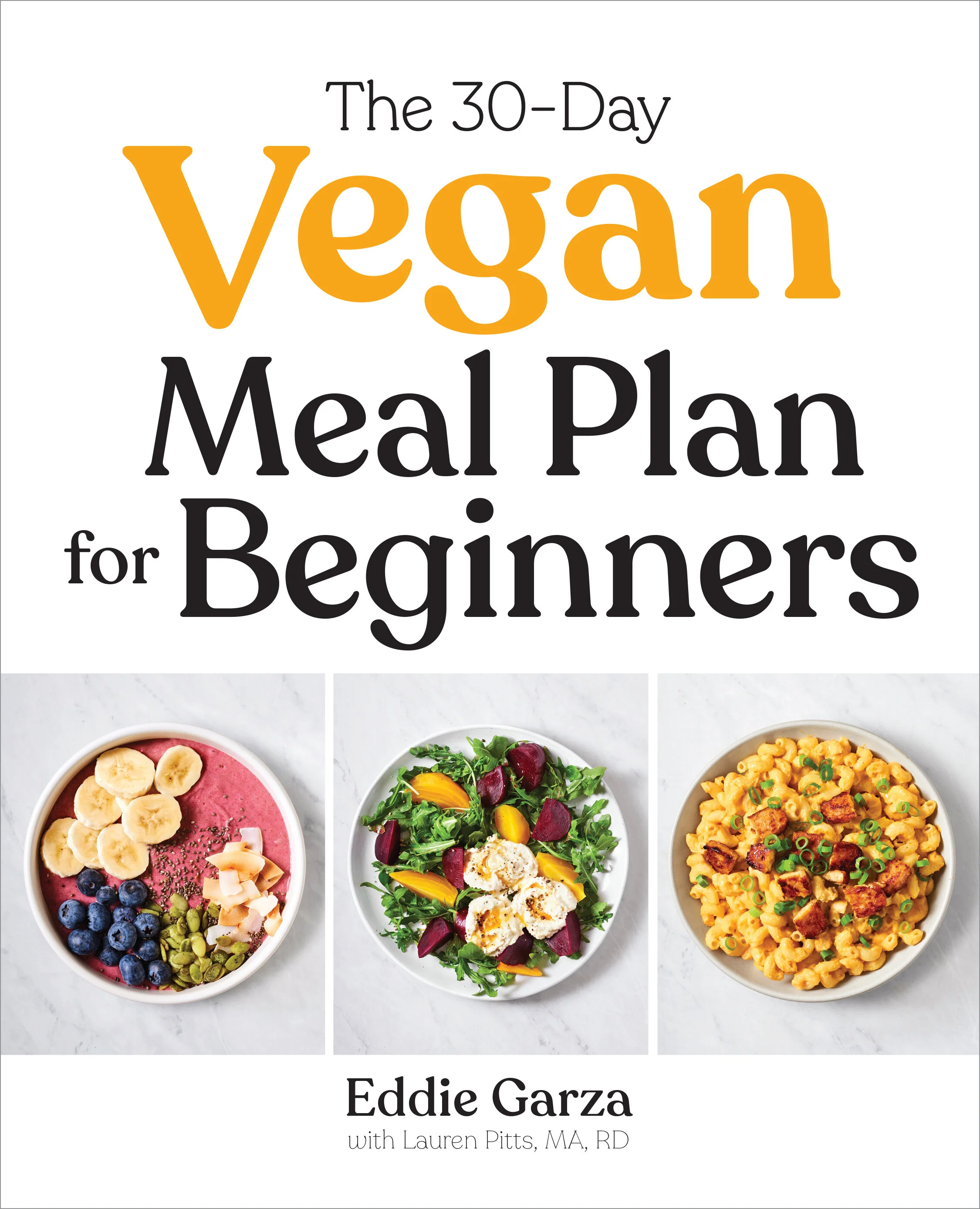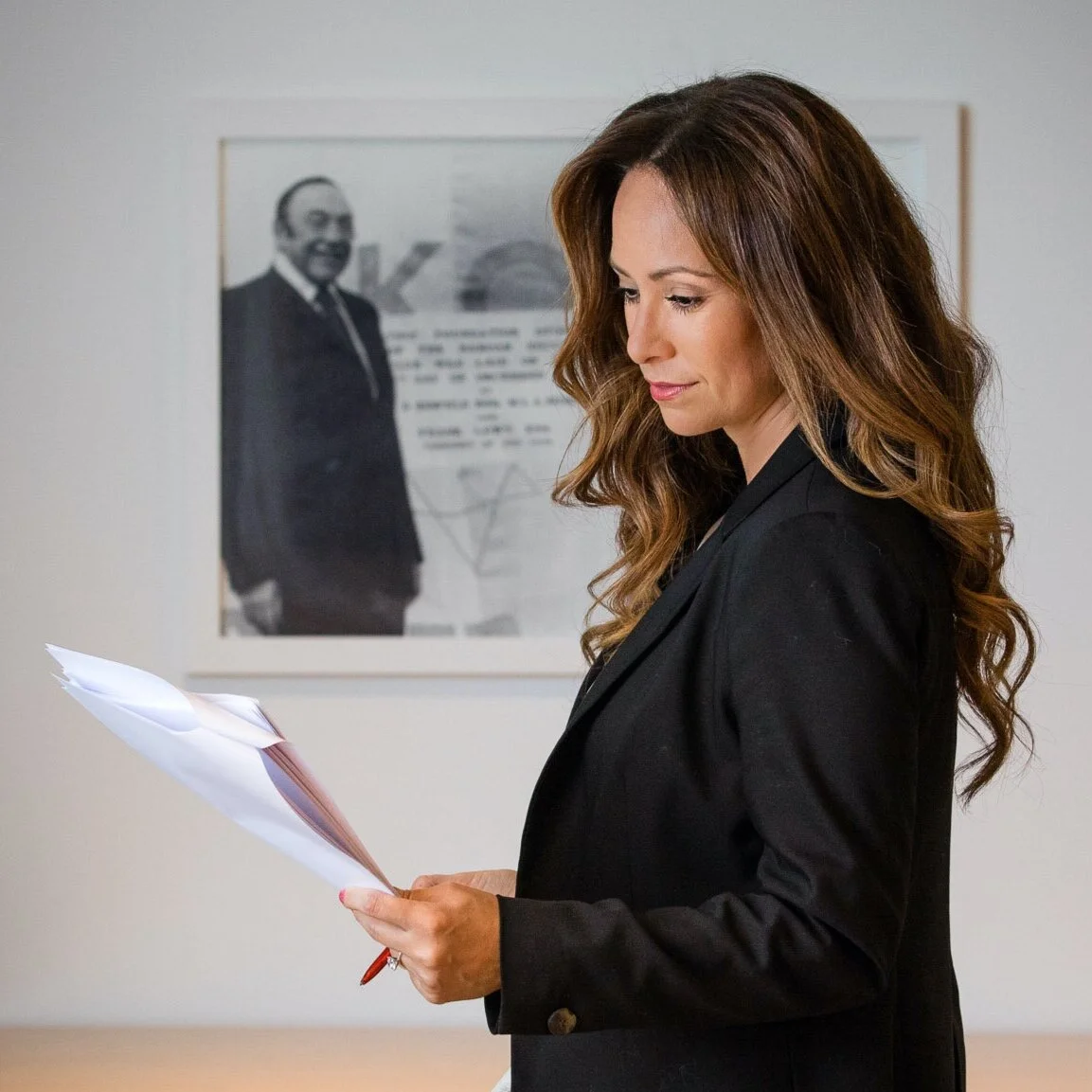A 30 Day Vegan Meal Plan Crafted By Eddie Garza
We catch up with Chef Eddie Garza, a plant-based chef, cookbook author, and Program Manager of Food & Nutrition The Humane Society of the United States.
Q. As one of the Top 20 Plant-based chef in the world, what is your message to people who are interested in veganism but don’t know where to start?
A. It's never been easier—or tastier—to go vegan! I always suggest starting with simple swap-outs for meat, eggs and dairy products. At pretty much every major supermarket, plant-based milks dominate the dairy case because they’re deliciously silky and smooth and contain zero lactose. Egg alternatives like JUST Egg make a wonderfully fluffy omelet and a decadent quiche or frittata. You can also find an extensive variety of vegan meats that look and taste so much like the real thing, you can’t even tell the difference!
Q. Plant-based cuisine has become increasingly popular in the last two years. Why do you think there has been such a shift?
A. More and more people are moving toward a plant-based diet for a variety of reasons. Some people choose plant-based as a way to reduce their carbon footprint, as animal agriculture is one of the leading causes of climate change. Others are leaving animal products off their plates to help animals. Cows, pigs, chickens, and other animals raised for food are amazing individuals who are capable of thinking, feeling, and displaying personalities just like our beloved pets at home. That’s why many people choose to eat vegan as a way to spare these sentient beings suffering and harm. And, of course, a growing number of people are going plant-based to improve their health. People who eat a vegan diet lower their risk for heart disease, type 2 diabetes, obesity, and other chronic diseases.
Q. Can you share with our readers the top 3 reasons veganism is good for the planet.
A. According to the Food and Agriculture Organization of the United Nations, the meat industry is responsible for nearly 20% of global greenhouse gas emissions. Methane emissions from livestock and other agricultural practices are 84 times more potent than carbon dioxide.
Another problem facing the environment is water pollution caused by animal agriculture. As the human population increases and the demand for meat continues to rise, factory farms now produce an estimated 500 million tons of manure each year, which is stored in massive cesspools or lagoons that often leak into waterways. This poses huge threats to both aquatic systems and human health.
Raising animals for food is also extremely resource intensive. Consider this: It takes about 2,000 gallons of water to produce a single pound of beef compared to just 200 gallons of water to produce the same amount of beans, potatoes, or wheat.
Q. What are some of the health benefits that plant based cuisine provides?
A. Research shows that diets rich in fruits, vegetables, whole grains, and plant-based proteins like legumes, nuts, and seeds are great for your overall health. Heart disease is the leading cause of death in the United States. The Centers for Disease Control and Prevention reports that in the U.S. heart disease takes the life of one person every 37 seconds, totaling roughly 647,000 people per year. Eating habits play a key role in determining the risk of heart disease. And research shows that plant-based diets don’t just prevent heart disease but can also reverse it.
Plant-based diets have also been proven to manage, prevent, and even reverse type 2 diabetes. A 2003 study by the National Institutes of Health determined that a plant-based diet controlled blood sugar three times more effectively than a traditional diabetes diet that limited calories and carbohydrates.
Plant-based diets can also help prevent certain cancers because they’re packed with fiber. Fiber consumption removes waste from the digestive system, which helps prevent colorectal cancer. It also helps remove excess hormones that could lead to breast and prostate cancer.
Q. Does switching to a plant-based diet involve a doctors visit or if this something that can be done by anyone without consulting a doctor?
A. I always suggest consulting with a physician or dietitian before making any dietary change. Plantbaseddoctors.org is a great resource for people interested in switching to a plant-based diet.
I began my vegan journey as a way to improve my personal health.
Q. What do you most enjoy about the plant-based lifestyle?
A. I began my vegan journey as a way to improve my personal health. And over the years, it’s brought me joy in knowing that I’m also helping the planet. Taking care of the environment is our moral obligation. Small dietary changes like swapping beef for beans can make a big difference for our future generations.
Q. Your new book, The 30-Day Vegan Meal Plan for Beginners is now available. What is your favorite recipe in the book?
A. There are so many recipes I love in my new book that it’s difficult to pick just one! As a brunch fanatic, I drool thinking about my Tofu Eggs Benedict with Tempeh Bacon. My Crispy Cauliflower Po-Boys with Aquafaba Rémoulade is another favorite. And for dessert, I have to go with Spiced Sweet Potato Cheesecake—yum!
Q. Share some of the challenges of writing a vegan cookbook.
A. For this particular book, the challenge was to make the recipes simple enough for a novice in the kitchen but interesting enough for a seasoned cook who’s just looking for ways to add more plant-based foods to their repertoire. Attention to nutritionals was also top of mind, which is why I partnered with a registered dietitian to make sure the meal plan was balanced with sufficient calories and macro- and micronutrients. I’m extremely proud of the work we did together!
Q. Who was your inspiration to become a Plant-based chef?
A. My late grandmother, Soledad, has always been my inspiration in the kitchen. By trade, she was a school cafeteria cook. And as a home cook, she made each and every meal with love. My first book, ¡Salud! Vegan Mexican Cookbook (Rockridge Press, 2016), was dedicated to her. It features 150 plant-based versions of the traditional Mexican meals she and I used to cook together when I was growing up.
Q. If you were in a deserted island and you could only have two kitchen tools to survive what would those be and why.
A. I would definitely want to have my chef’s knife to slice any delicious tropical fruits I find on the island. I’d also want my molcajete (stone mortar and pestle) to crush herbs and crack open coconuts.
Find him on IG @theeddiegarza










